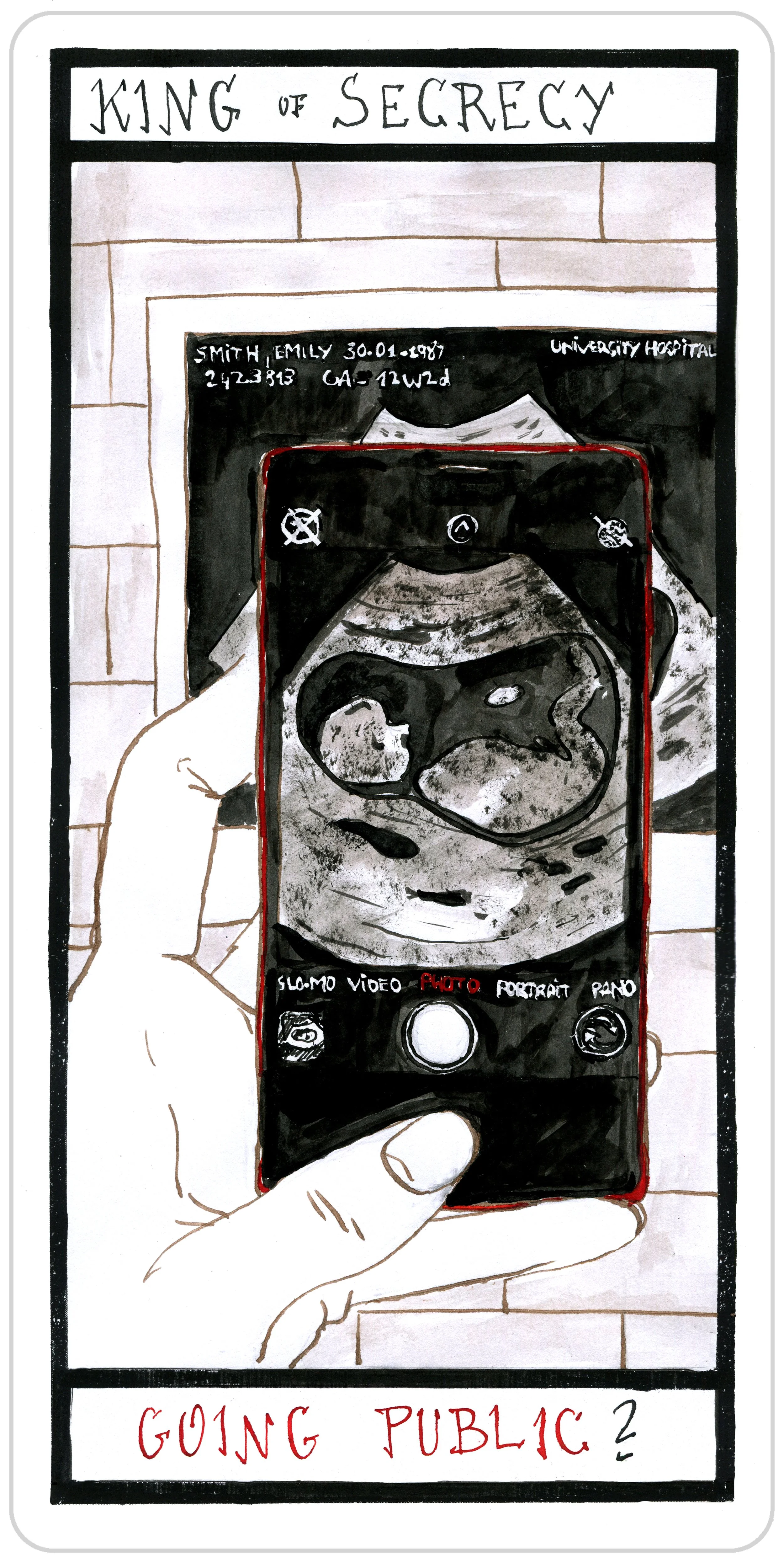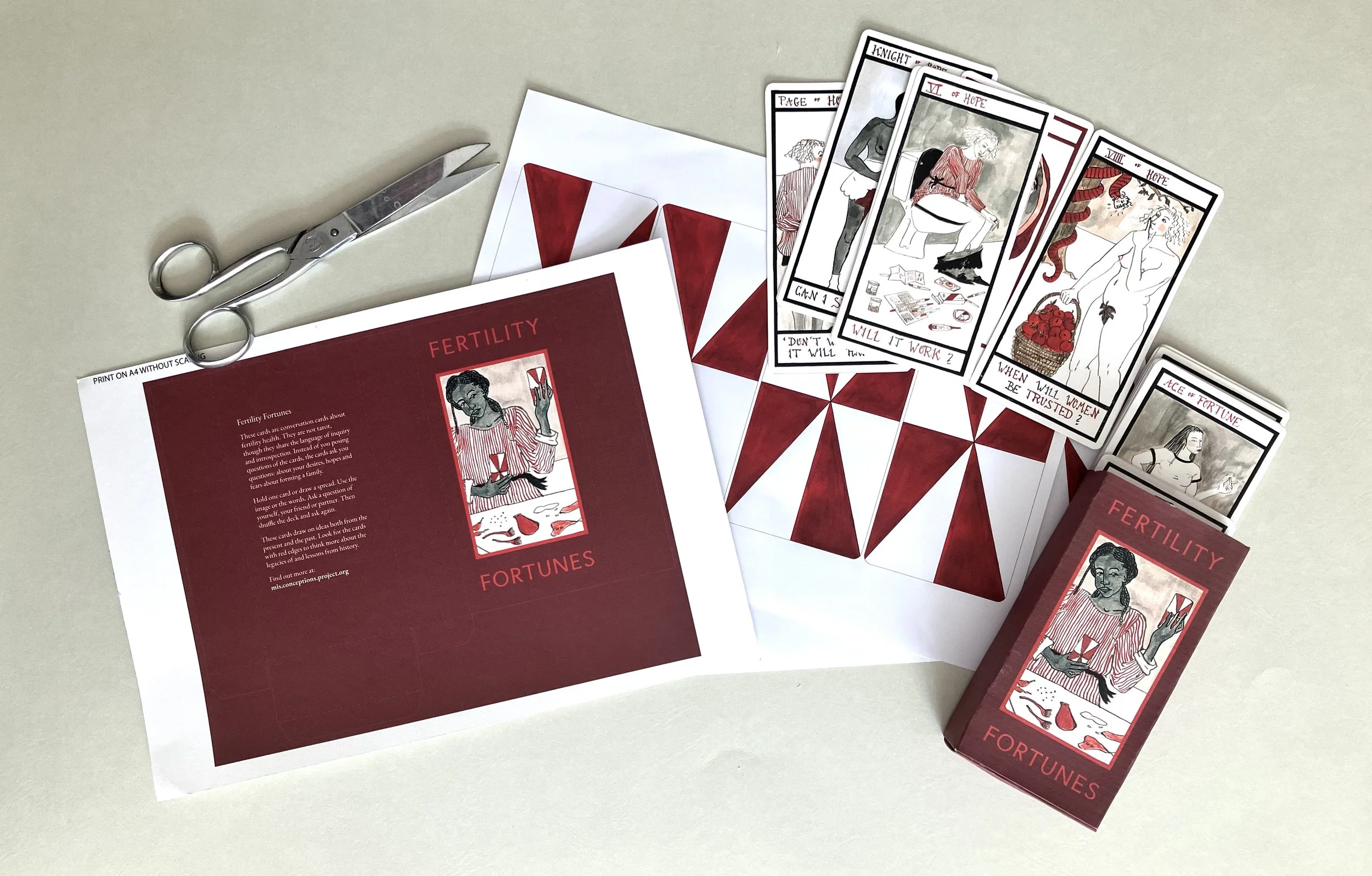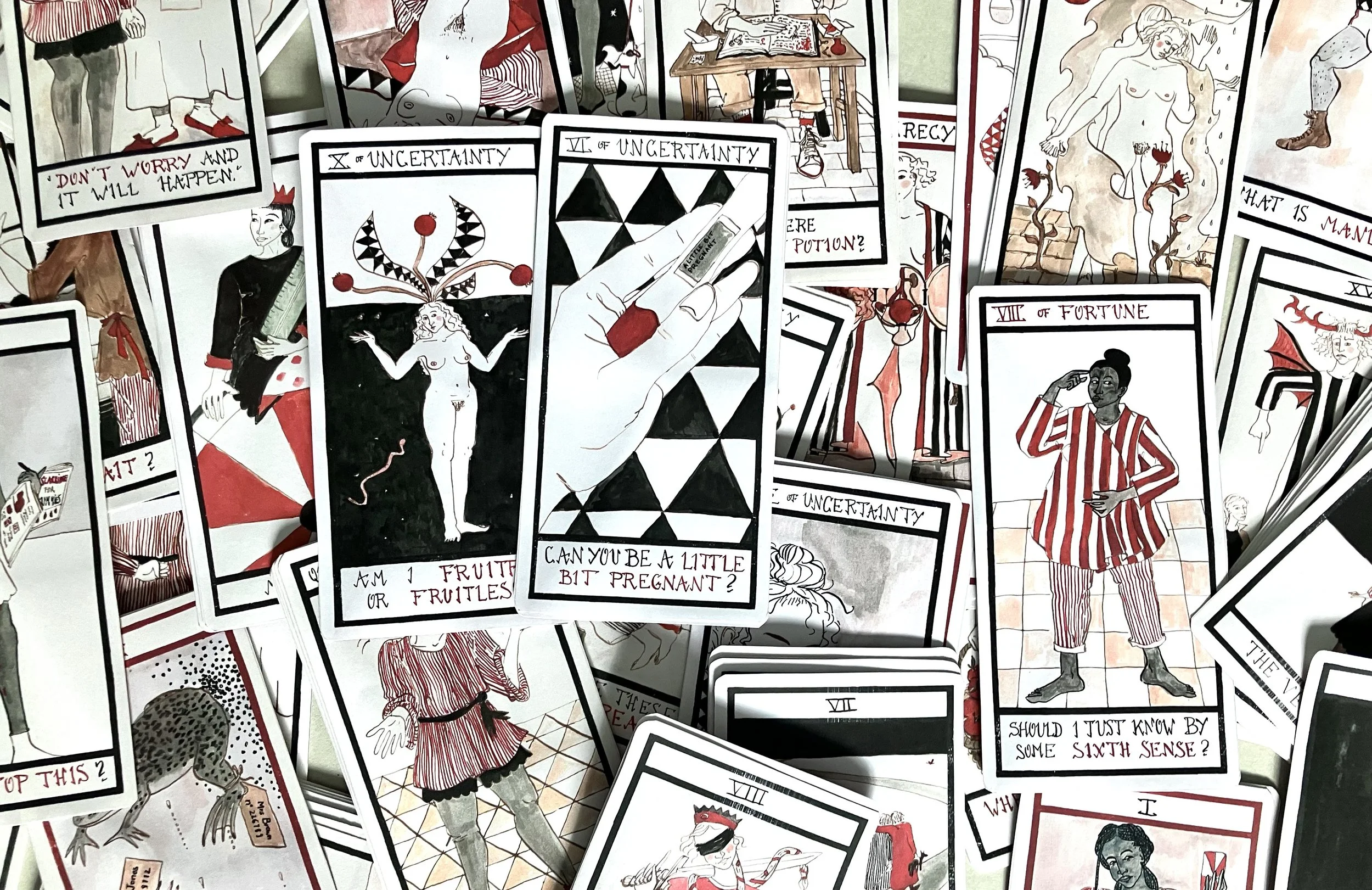FERTILITY FORTUNES
Conversation Cards for fertility health
What is fertility for you?
A social expectation? A biological rhythm? A creative urge?
How can ideas, relationships and futures be made fertile, with or without having children?
What is it you want to know about your future? What do you know you want your future to hold? What do you still hold in doubt? Do those doubts need resolution or might they, too, be fertile?
Where have you been looking for answers so far? From science? Google? God? Friends and family? Modernity or history? Nature? Your dreams? The stars?
These cards are not tarot, though they share the language of inquiry and introspection. And, instead of you posing questions of the cards, the cards ask you about how your desires fit (or might be made to fit) into your world. They seek a rich inclusive conversation, with space for all.
Hold one card or draw a spread. Use the image or the words. Ask yourself, your friend or partner.
Then shuffle the deck and ask again.
The Fertility Fortunes card deck and box are free and can be downloaded and printed at home or at a print shop.
The Fertility Fortunes cards were made as part of an Arts and Humanities Research Council funded project, (Mis)Conceptions: A Cultural History of Pregnancy Ambiguity which ran from 2023-2025.
They were made through engagement with different fertility-health experts (counsellors, sonographers, early pregnancy specialists, women’s health researchers and academics in different disciplines) as well as members of the public at a range of different events: festivals, workshops, and lates events at museums and universities.
In London in January 2025, we also held a 4-day exhibition with a programme of events (talks, screenings, panel discussions, readings and hands-on art sessions).
We are grateful to everyone who contributed ideas, text and drawings to our crowd-sourced card deck, and expertise to our programme of events and activities.
The project was led by Isabel Davis, with art work by Anna Burel, and public engagement support by Anya Gleizer. Our card box and deck was formatted by graphic designer Elisender Losantos.
The project steering committee comprised Lisa Baraitser (Birkbeck), Robin Basu Roy (QMUL), Tracey Loughran (Essex), Tabitha Moses (independent artist), Alison Perry (George Institute, Imperial and The Bridge), and Jen Pullar (Natural History Museum).
We also partnered with Lora Adair (Brunel), Elma Brenner (Wellcome Collection), Sally Butcher (Wellcome Collection and Birmingham City University), Alison Perry (Imperial), Rebecca Whiteley (Birmingham), and Ashley Younger (Nuffield Department of Women's and Reproductive Health).
The Fertility Fortunes cards are styled like the tarot, with a ‘major arcana’ of archetypes and four ‘minor arcana’ suits: secrecy, fortune, uncertainty and hope. Some of the ideas within the tarot, such as the wheel of fortune (as in this page from Anna’s sketchbook of drafts) are used to pick up the themes within the experience of trying for parenthood.
The cards are designed to offer a physical tool away from the noise of the internet, for private reflection and conversation. We live in an information rich age, yet navigating the complex messaging, sales pitches, influencer chatter and life advice can be challenging. What do we want for ourselves? What can we afford? Who should we trust?
Fertility Fortunes Exhibition
Jan 23-26, 2025
The Bomb Factory at Holborn, London
Celebrating over a year of work to develop our (Mis)Conceptions deck of conversation cards, we welcomed a full programme of fascinating talks and workshops, within a space inhabited by the original artworks featured on the cards as well as unique life size figures.
Visit our social media:
































